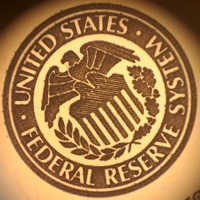
The U.S. Federal Reserve has announced it is conducting an investigation and joining other regulators in ascertaining the truth surrounding the manipulation of Forex rates and the lack of oversight and controls over currency trading, according to a recent Fed statement.
The Fed oversees a plethora of American bank holding firms that collectively constitute a large portion of the global forex trade – the involvement of the central bank in the probe, previously abstaining from the investigatory process, signals that additional fines or prosecutions may be on the horizon.
Fed Mandated With Discretion Over Probe
According to Jacob. S. Frenkel, a former federal prosecutor, “The Fed has discretion whether to and how much to fine the banks if deficient controls or lack of supervision resulted in traders at these banks manipulating currency rates.” Indeed, the Federal government has been involved in the application of several fines, including one of the most recent involving prominent banks such as JPMorgan Chase and Royal Bank of Scotland (RBS).
Federal authorities have contracted at least twelve banks, with numerous other currency traders being the subject of disciplinary action. In addition, several banks including RBS and Lloyds Banking Group Plc have launched their own internal investigations into the allegations.
The news comes on the heels of the recent firing of Citigroup’s head of European spot trading Rohan Ramchandani, who has links to a group colloquially known as the ‘cartel’. It is this construct that has drawn the ire of the recent Federal probe, given the potentially sweeping repercussions throughout such a widespread and globally lucrative forex industry.
What Does The Fed’s Involvement Mean?
For starters, the Fed’s involvement highlights the seriousness and validity of the allegations lobbied against banks for forex manipulation. The Fed defines its role as “a focus on potential risks to banks, assessing a firm’s ability to identify, measure, monitor, and control these risks,” via the Fed website.

Furthermore, the central bank can focus on banks for specific weaknesses that could potentially erode an often razor-thin line of legality. In matters such as this, the Fed can dictate or sanction fines and even instill trading bans where deemed necessary in extreme situations. Ultimately, the Fed’s involvement in the already substantial investigation will focus on the origin of the forex manipulation charges, specifically whether these presumed violations were orchestrated by individual traders or at the whim of financial institutions. Speaking on this matter, Managing Partner of Federal Financial Analytics , Karen Shaw Petrou noted in a statement that, “The issue is are there any bad apples, how many are there and how rotten is the barrel? Traditionally, the Fed has not focused on rate setting until the recent Libor-rigging cases”.
As such, the manipulation charges spawned from a list of benchmark financing rates, including the previously headlined Libor, ISDAfix, and other rates – substantial fines have already been levied on this matter. “Because foreign exchange regulation is largely nonexistent, the task falls to the Fed to use its regulatory powers to ensure that the banks address all controls associated with currency trading,” Frenkel added in his statement.
Not Just Fines, Forex Landscape At Odds
Given the Fed’s latitude in covering and overseeing these matters, it in essence is fully equipped to act as the judge, jury an executioner. At risk is not only the dolling out of additional fines and other firings, but an altering of the forex trading landscape as a whole. Time will tell whether the Fed’s involvement heralds anything new, however, the fact that it has joined the investigation no doubt brings to light the seriousness of the matter.


















